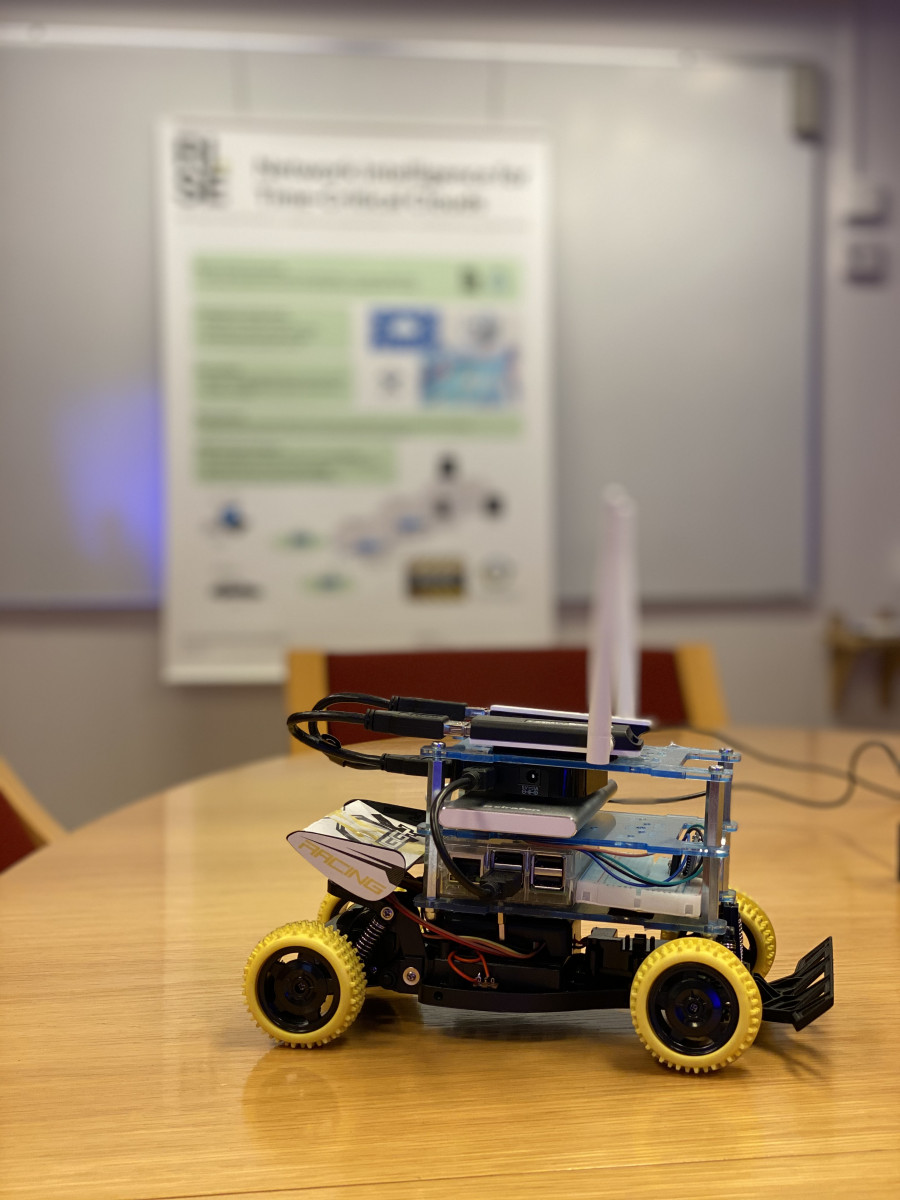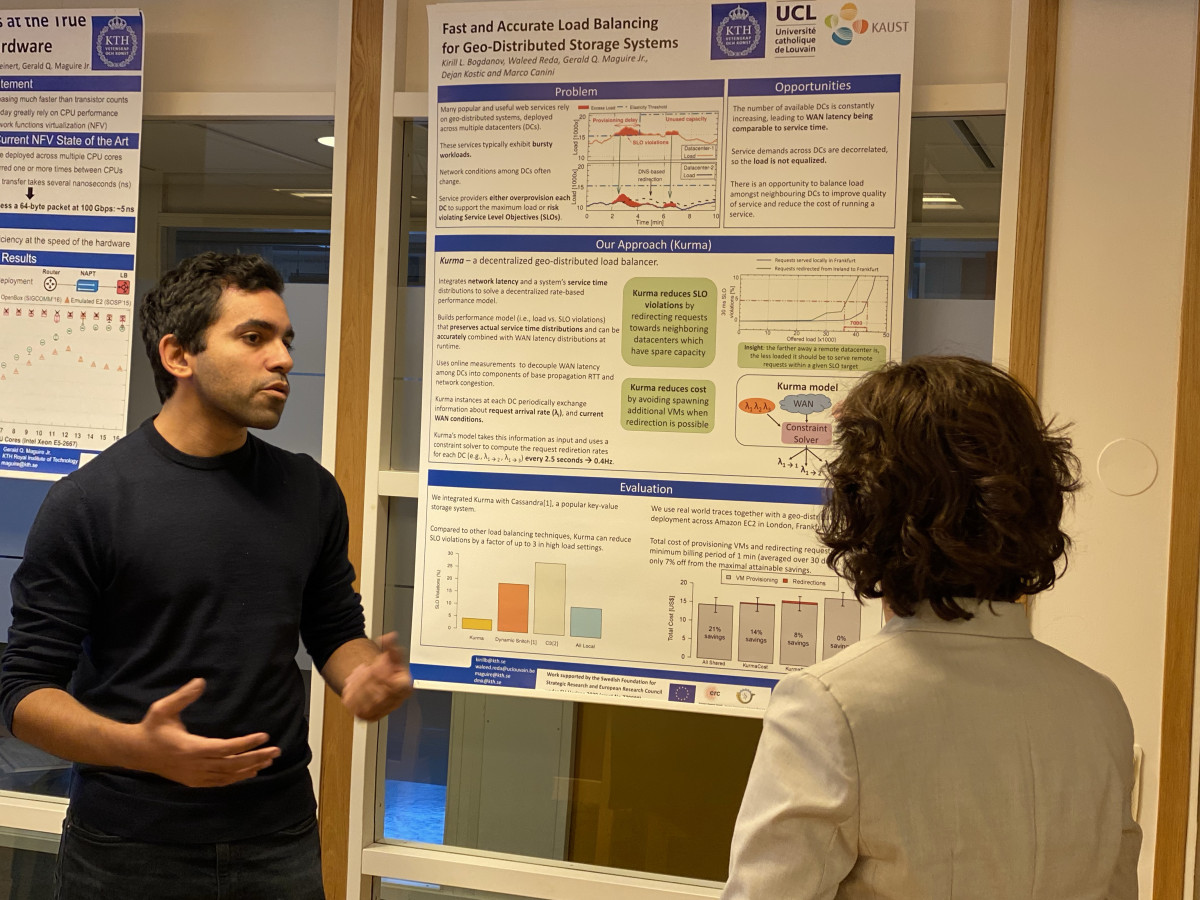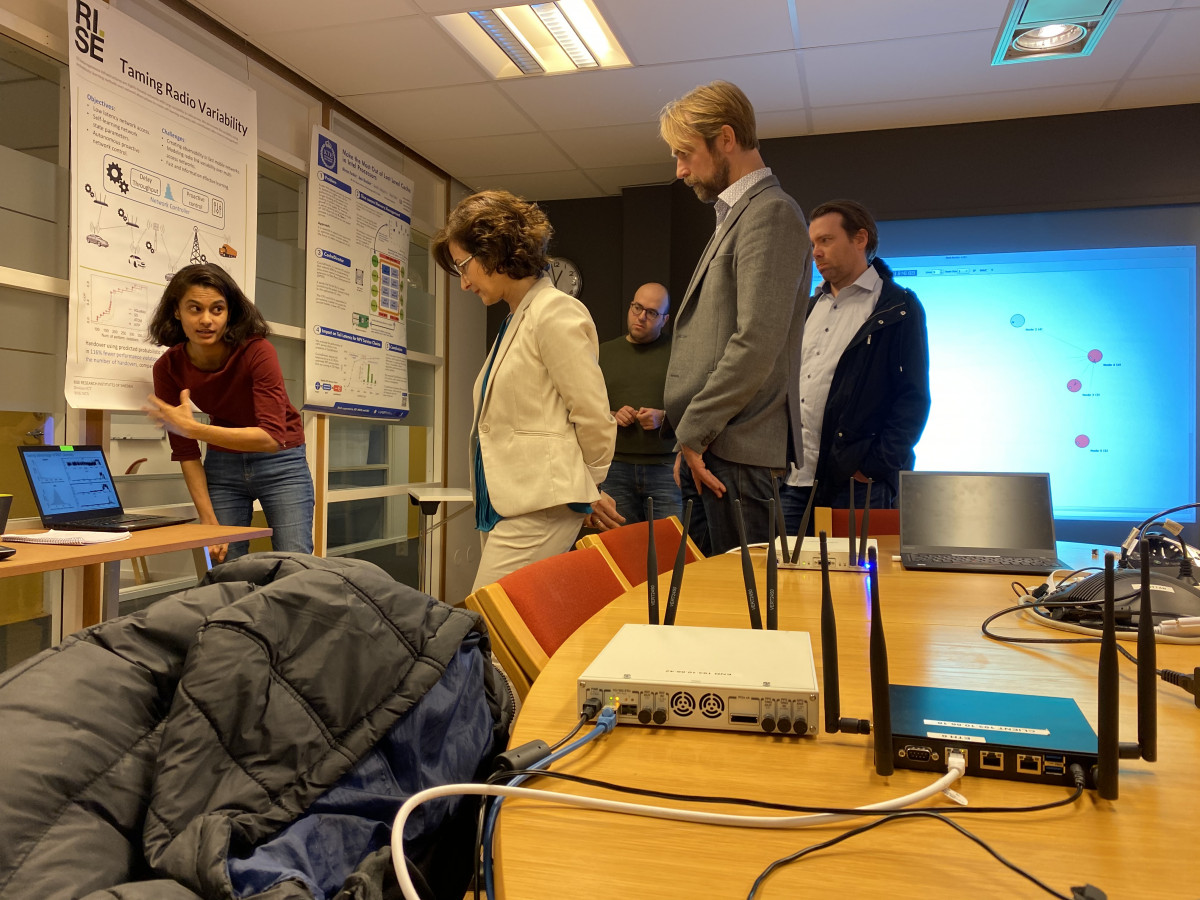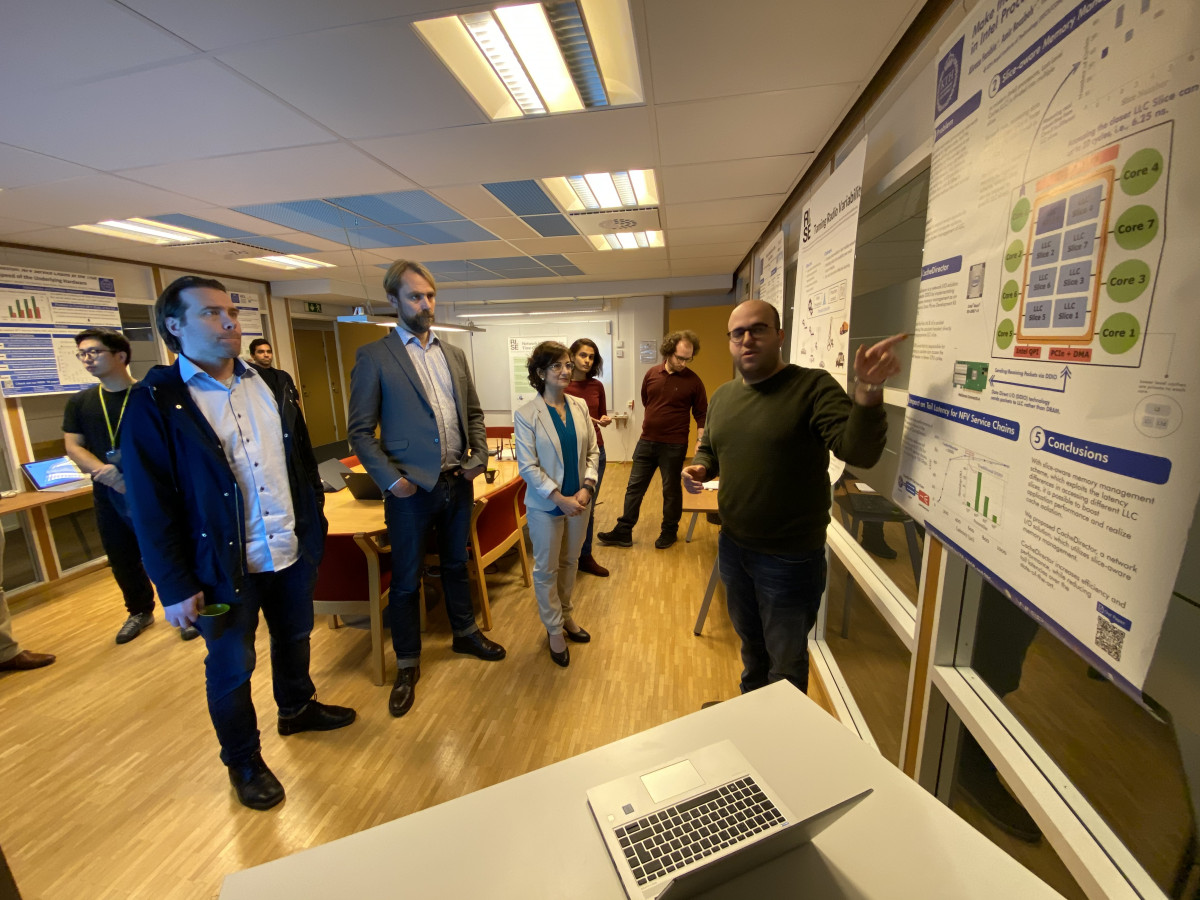At USENIX ATC 2020, Alireza presented our paper titled “Reexamining Direct Cache Access to Optimize I/O Intensive Applications for Multi-hundred-gigabit Networks”. Full materials (video, slides, PDF) are available at the USENIX site. The paper abstract is below. This is joint work with Alireza Farshin, Amir Roozbeh, Gerald Q. Maguire Jr., and Dejan Kostić.
Memory access is the major bottleneck in realizing multi-hundred-gigabit networks with commodity hardware, hence it is essential to make good use of cache memory that is a faster, but smaller memory closer to the processor. Our goal is to study the impact of cache management on the performance of I/O intensive applications. Specifically, this paper looks at one of the bottlenecks in packet processing, i.e., direct cache access (DCA). We systematically studied the current implementation of DCA in Intel ® processors, particularly Data Direct I/O technology (DDIO), which directly transfers data between I/O devices and the processor’s cache. Our empirical study enables system designers/developers to optimize DDIO-enabled systems for I/O intensive applications. We demonstrate that optimizing DDIO could reduce the latency of I/O intensive network functions running at 100Gbps by up to ~30%. Moreover, we show that DDIO causes a 30% increase in tail latencies when processing packets at 200Gbps , hence it is crucial to selectively inject data into the cache or to explicitly bypass it.








